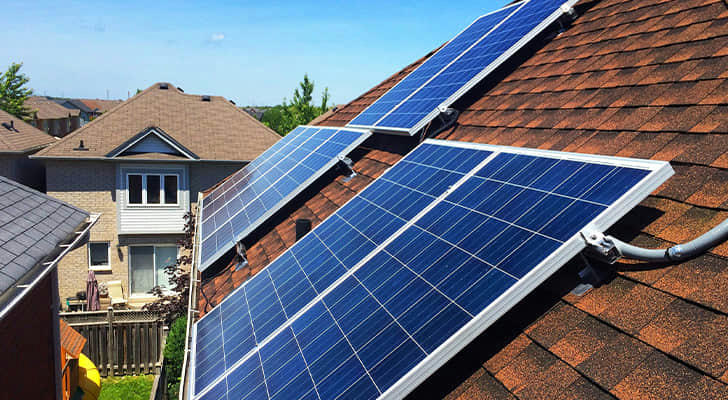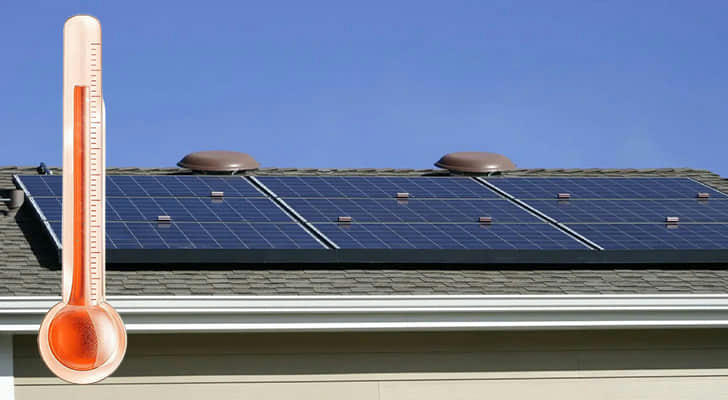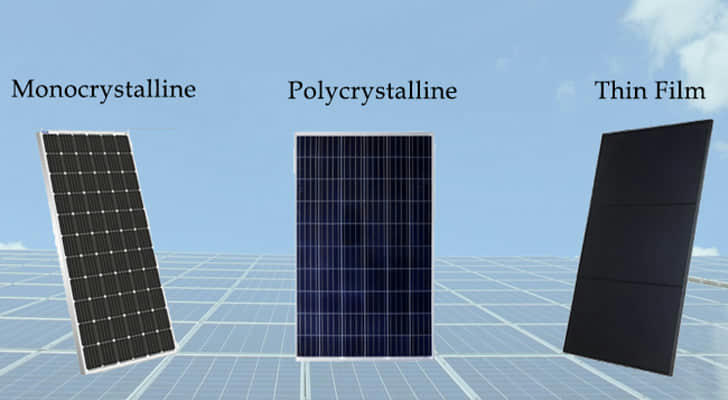Buy the Perfect Solar Panels for Your Home
So, you've made the exciting decision to switch to solar energy and power your home with clean, renewable electricity.That's an excellent move! With so many options available, though, choosing the right solar panels can feel overwhelming. Don't worry—this guide will walk you through the process and help you make a well-informed choice, ensuring your solar investment keeps your home bright and efficient for many years to come.

1. Decode Solar Panel Costs
The cost of solar panels is often the first thing on people's minds, and it's definitely an important factor. The price of panels can vary based on several elements, including their size (measured in Watts), the physical dimensions, the brand, the materials used, and the length of the warranty.
While it's tempting to opt for the cheapest panels available, remember that price isn't everything. Cheaper panels may save you money upfront but could be less efficient or have a shorter lifespan, which might cost you more in the long run. Solar panels are a long-term investment, and choosing quality over the lowest price can lead to greater satisfaction and savings down the road.
2. Assess Solar Panel Quality
Quality is key when it comes to solar panels. Panels differ not just in how they look but in how they're made and the materials used. Some manufacturers oversee every stage of production, ensuring high standards and investing heavily in research and development. These panels typically offer better performance and durability.
Other manufacturers might focus on assembly without producing their own cells, often resulting in lower-quality panels. Researching the manufacturers and reading reviews from other customers can provide valuable insights into the panel's performance and the company's customer service.
3. Evaluate Energy Efficiency
Energy efficiency is all about how well a panel converts sunlight into usable electricity. Higher efficiency means more power from the same amount of sunlight, but it also generally means a higher price tag. However, that doesn't mean you should automatically go for the most efficient panels available. Think about your actual energy needs and how much power you need to generate. Just as you wouldn't buy a sports car for a short commute, you don't need the highest efficiency panels if a more moderately priced option will meet your needs.
4. Consider the Temperature Coefficient
The temperature coefficient measures how well a panel performs as temperatures rise. Solar panels can lose efficiency in high heat, so a lower temperature coefficient means the panel performs better in hot weather. This can be crucial if you live in a sunny, warm climate where panels might overheat.

5. Check Durability
Durability often reflects the manufacturer's confidence in their product. Most solar panels come with a 25-year warranty, which is a good indicator of long-term reliability. If a manufacturer offers a shorter warranty, it might suggest they're not as confident in their panel’s longevity.
Solar panels are relatively low-maintenance, requiring only periodic cleaning and inspection to keep them in top shape. A longer warranty can provide peace of mind, ensuring you're covered if any issues arise down the line.
6. Find the Right Size
Size matters when it comes to solar panels. You need a system large enough to meet your energy needs, but you also need to ensure you have enough space for installation. Solar panel size is related to their wattage; more watts generally mean larger panels.
For most homes, a 4kW solar system is typically sufficient. The wattage determines how much power each panel produces. A 200-watt panel generates more power than a 100-watt panel. Getting the wattage right is crucial—too few watts and you won't generate enough power; too many and you might overspend.
7. Understand Different Types of Solar Cells
Solar panels come with different types of cells, each with its own efficiency and characteristics:
Monocrystalline Silicon Panels: These panels are known for their high efficiency and sleek black appearance. They perform well in hot climates and are compact, but they come with a higher price tag.
Polycrystalline Silicon Panels: These are popular and typically more affordable than monocrystalline panels. They have a blue, speckled look and offer good efficiency for residential use.
Amorphous (Thin-Film) Silicon Panels: These panels are lightweight and flexible but less efficient than crystalline panels. They require more space to generate the same amount of power.

Find Your Perfect Solar Panel System
Armed with this information, you're well on your way to choosing the ideal solar panels for your home. Remember to compare different options and choose a supplier that meets your needs and budget.
Choosing the right solar panel system is a big step, but with the right information and professional guidance, you'll make a decision that benefits your home and the environment for years to come. Enjoy the process of going green and powering up your home with the sun's energy!
